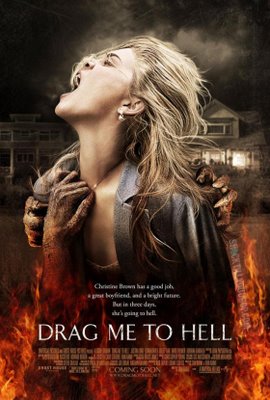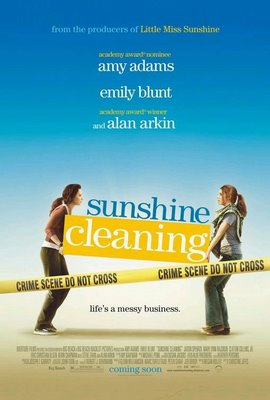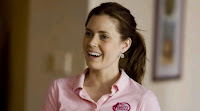In response to my previous post about
pay discrimination in Hollywood, an anonymous commenter pointed out the following:
“Although I agree that women should be paid the same in all industries, your breakdown of the top grossing movies fails to recognise that apart from Sex and the City there were major male actors in each of the films, whereas the male movies listed featured the men as the main star of the film surrounded by a supporting cast.”
That got me thinking. While it was impossible to account for every single factor that might’ve contributed to the actors’ salaries more than doubling the actresses’ salaries (actors/actresses who produced rather than starred in a film, actors/actresses who released more than one film in the previous year, actors/actresses receiving residuals from past work, worldwide box office gross versus US box office gross, etc), my main goal was to illustrate the fact that lead actresses didn’t seem to be fairly compensated for their films based on skill-level (measured by Oscar nominations and wins), US box office gross, and the overall critical reception of their work, when compared/contrasted with the male leads’ compensation.
But, like I said, that anonymous commenter got me thinking. Is it possible that male leads are usually the main attraction in their films, surrounded by an anonymous supporting cast, while female leads tend to star in more ensemble-driven films, surrounded by a cast of prominent male actors?
So I decided to use the list of films from my previous post on pay discrimination to attempt to get to the bottom of this. My ultimate goal: to discover if a trend exists where male leads star in their “own movies” whereas female leads tend to blend in with the rest of their cast (which often includes major male actors). Or, do we merely view male leads differently than female leads, seeing the female leads the way our society sees women in general: as helpers, partners, and assistants rather than leaders?
********************************************************************
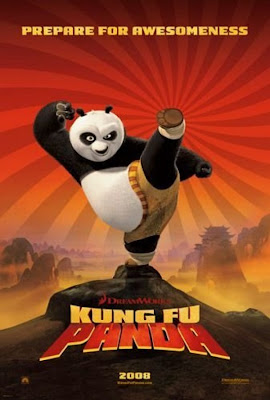 Kung Fu Panda: Angelina Jolie’s highest grossing film for 2008
Kung Fu Panda: Angelina Jolie’s highest grossing film for 2008
Gross: $215,395,021
Cast: co-starring Jack Black, well-known ensemble cast, including Dustin Hoffman, Ian McShane, Jackie Chan, Seth Rogen, and Lucy Liu
Analysis: Most of the posters only featured the Panda, and the previews did the same, mainly focusing on Jack Black in the title role. While Angelina Jolie is an Oscar-winner, as is Dustin Hoffman, and they are by no means minor players in the film industry, it’s safe to characterize Kung Fu Panda as a Jack Black movie, since it was essentially marketed as such.
Verdict: Jack Black movie, supported by a prominent male and female cast.
********************************************************************
 Marley & Me: Jennifer Aniston’s highest grossing film for 2008
Marley & Me: Jennifer Aniston’s highest grossing film for 2008
Gross: $143,084,510
Cast: co-starring Owen Wilson as love interest, well-known supporting cast, including Eric Dane, Kathleen Turner, and Alan Arkin
Analysis: The promotional posters either featured the dog only, or they featured all three: Aniston, Wilson, and the dog. I’m not sure how to characterize this movie, as the dog seems to carry as much star-power as the actors. Given that Aniston and Wilson both have some box-office draw, I’ll call this what it is: a draw. (But I really just want to give it to Marley.)
Verdict: Aniston/Wilson movie, supported by a prominent male and female cast. And a dog.
********************************************************************
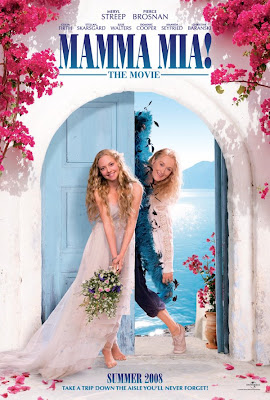 Mamma Mia!: Meryl Streep’s highest grossing film for 2008
Mamma Mia!: Meryl Streep’s highest grossing film for 2008
Gross: $143,704,210
Cast: well-known ensemble cast, including Pierce Brosnan, Colin Firth, Stellan Skarsgard, and Amanda Seyfried
Analysis: Meryl Streep is in this (and many film posters exclusively promoted Amanda Seyfried).
Verdict: Meryl Streep movie (with special shout-out to Seyfried) supported by a prominent male cast.
********************************************************************
 Sex and the City: Sarah Jessica Parker’s highest grossing film for 2008
Sex and the City: Sarah Jessica Parker’s highest grossing film for 2008
Gross: $152,595,674
Cast: well-known ensemble cast, including Kim Cattrall, Kristin Davis, Cynthia Nixon, Chris Noth, Candace Bergen, and Jennifer Hudson
Analysis: Even though this is an ensemble comedy, Sarah Jessica Parker narrates, and most of the promotional posters focused on her. The film also benefitted from its success as a TV show, where SJP’s job as a columnist took center stage.
Verdict: Sarah Jessica Parker movie, supported by a prominent female cast.
********************************************************************
 What Happens in Vegas: Cameron Diaz’s highest grossing film for 2008
What Happens in Vegas: Cameron Diaz’s highest grossing film for 2008
Gross: $80,199,843
Cast: co-starring Ashton Kutcher as love interest, anonymous supporting cast, including Rob Corddry, Lake Bell, and Jason Sudeikis
Analysis: Who cares? This movie sucked and Diaz/Kutcher could’ve been replaced by other actors and it probably wouldn’t have made a difference. They both got equal billing and promotion, and since it’s a rom-com of sorts, and rom-coms rely on, you know, a romantic relationship, it too is a draw.
Verdict: Diaz/Kutcher movie, supported by an anonymous cast.
********************************************************************
(Sandra Bullock: did not star in any films in 2008)
Analysis: From what I can gather, she produced several films/owns a production company, so that’s where her loot came from.
********************************************************************
 Four Christmases: Reese Witherspoon’s highest grossing film for 2008
Four Christmases: Reese Witherspoon’s highest grossing film for 2008
Gross: $120,136,047
Cast: co-starring Vince Vaughn as love interest, well-known supporting cast, including Robert Duvall, Sissy Spacek, Jon Voight, and Jon Favreau
Analysis: Same deal—it’s a rom-com, so yeah. I’d like to argue that Reese Witherspoon’s Oscar win trumps Vince Vaughn’s whole schlubby-funny-guy thing, but the unfortunate reality is that the success of rom-coms doesn’t usually depend on the actual quality of the actors/acting.
Verdict: Witherspoon/Vaughn movie, supported by a prominent, mostly male cast, with the exception of Spacek.
********************************************************************
 Australia: Nicole Kidman’s highest grossing film for 2008
Australia: Nicole Kidman’s highest grossing film for 2008
Gross: $49,420,849
Cast: co-starring Hugh Jackman, anonymous supporting cast, including Shea Adams, Eddie Baroo, Ray Barrett, and Tony Barry
Analysis: Love, or something. I never bothered to see this gem, given the reviews, but if the movie poster is anything to go by, I’m pretty sure it’s about love and Australia. Nicole Kidman has won two Oscars and everyone loves her, so I’m tempted to call Kidman the main attraction. Except! Hugh Jackman is totally Wolverine!
Verdict: Kidman/Jackman movie, supported by an anonymous cast.
********************************************************************
 Beverly Hills Chihuahua: Drew Barrymore’s highest grossing film for 2008
Beverly Hills Chihuahua: Drew Barrymore’s highest grossing film for 2008
Gross: $94,497,271
Cast: well-known supporting cast including Piper Perabo, Andy Garcia, George Lopez, Cheech Martin, Edward James Olmos, and Jamie Lee Curtis
Analysis: Um.
Verdict: Talking Chihuahua movie, with Barrymore’s voice supported by a prominent male cast (and Jamie Lee Curtis).
********************************************************************
 Leatherheads: Renee Zellweger’s highest grossing film for 2008
Leatherheads: Renee Zellweger’s highest grossing film for 2008
Gross: $31,199,215
Cast: co-starring George Clooney and John Krasinski, anonymous supporting cast, including David de Vries, Rick Forrester, Malcolm Goodwin, and Matt Bushell
Analysis: Zellweger barely got mentioned in the promotion of this film and seems to have been relegated to the infamous barely-there role-as-female-love-interest. Didn’t they show her in the previews literally cheering from the sidelines?
Verdict: George Clooney movie, supported by an anonymous male cast.
********************************************************************
 Indiana Jones: Cate Blanchett’s highest grossing film for 2008
Indiana Jones: Cate Blanchett’s highest grossing film for 2008
Gross: $316,957,122
Cast: co-starring Harrison Ford and Shia LaBeouf, reasonably well-known supporting cast, including Karen Allen, Ray Winstone, and John Hurt
Analysis: I actually think this is a tough one. Blanchett = brilliant Oscar-winning actress, so it’s hard to exclusively call this for Ford. But in reality, would people have gone to see this if Cate Blanchett’s role-as-villain had been played by another actress? Yes.
Verdict: Harrison Ford movie, supported by a prominent actress (Blanchett) and a mostly male cast.
********************************************************************
 Get Smart: Anne Hathaway’s highest grossing film for 2008
Get Smart: Anne Hathaway’s highest grossing film for 2008
Gross: $130,246,343
Cast: co-starring Steve Carell, well-known supporting cast, including Dwayne Johnson, Alan Arkin, James Caan, and Bill Murray
Analysis: I watched the first fifteen minutes of this before turning it off, and it appeared as if Carell and Hathaway had a whole equal partnership going on. But I have to admit, I was only talked into watching it because someone reminded me that Steve Carell is hilarious. When I realized it was the worst fifteen minutes of a film I’d ever seen, I lamented that Hathaway chose to be a part of it.
Verdict: Carell/Hathaway movie, supported by a prominent male cast.
********************************************************************
(Halle Berry: did not star in any films for 2008)
Analysis: I don’t know man, I don’t know.
********************************************************************
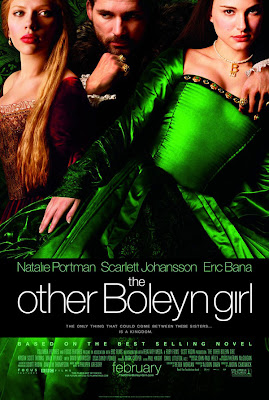 The Other Boleyn Girl: Scarlett Johansson’s highest grossing film for 2008
The Other Boleyn Girl: Scarlett Johansson’s highest grossing film for 2008
Gross: $26,814,957
Cast: co-starring Natalie Portman and Eric Bana, anonymous supporting cast, including Jim Sturgess, Mark Rylance, David Morrissey, and Kristen Scott Thomas
Analysis: This film was all kinds of offensive. The marketing mainly focused on the casting of Portman/Johansson as vengeful sisters, (fighting over a man) so I’m only barely giving it to Johansson, since she’s the actual “Other Boleyn Girl” … and the supposed heroine.
Verdict: Scarlett Johansson movie, supported by Bana, Portman, and an anonymous, mostly male cast.
********************************************************************
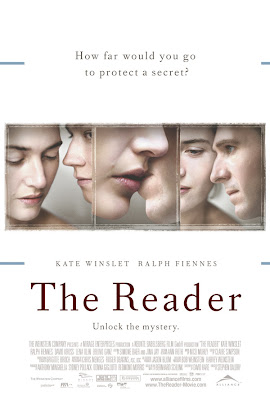 The Reader: Kate Winslet’s highest grossing film for 2008
The Reader: Kate Winslet’s highest grossing film for 2008
Gross: $34,111,418
Cast: co-starring Ralph Fiennes, anonymous supporting cast, including Jeanette Hain, David Cross, Susanne Lothar, and Alissa Wilms
Analysis: I had no idea who else was in this besides Kate Winslet. And she won an Oscar (finally) for this role.
Verdict: 100% Kate Winslet movie, supported by Fiennes and an anonymous, male/female cast.
********************************************************************
 Indiana Jones: Harrison Ford’s highest grossing film for 2008
Indiana Jones: Harrison Ford’s highest grossing film for 2008
Gross: $316,957,122
Cast: co-starring Cate Blanchett and Shia LaBeouf, reasonably well-known supporting cast, including Karen Allen, Ray Winstone, and John Hurt
Analysis: We already went over this. Blanchett. Brilliant. Doesn’t matter.
Verdict: Begrudgingly given to Ford.
********************************************************************
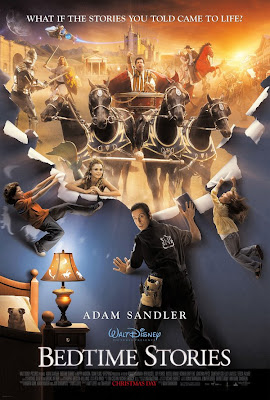 Bedtime Stories: Adam Sandler’s highest grossing film for 2008
Bedtime Stories: Adam Sandler’s highest grossing film for 2008
Gross: $109,993,847
Cast: co-starring Keri Russell and Guy Pearce, reasonably well-known supporting cast, including Russell Brand, Richard Griffiths, Lucy Lawless, Courteney Cox, and Carmen Electra
Analysis: Adam Sandler was the only person in this film they even attempted to promote, which is good news for all the other actors associated with this piece.
Verdict: Adam Sandler can have it, with support from a prominent female/less prominent male cast.
********************************************************************
 Hancock: Will Smith’s highest grossing film for 2008
Hancock: Will Smith’s highest grossing film for 2008
Gross: $227,946,274
Cast: co-starring Charlize Theron and Jason Bateman, anonymous supporting cast, including Jae Head, Eddie Marsan, and David Mattey
Analysis: It’s a Will Smith action movie, what more can one say? Sure, Charlize Theron is an Oscar-winning actress who plays the role of “very important sidekick” next to a world famous action hero, but just check out the ridiculous movie poster if you need confirmation.
Verdict: Will Smith movie, supported by Theron and random men I’ve never heard of.
********************************************************************
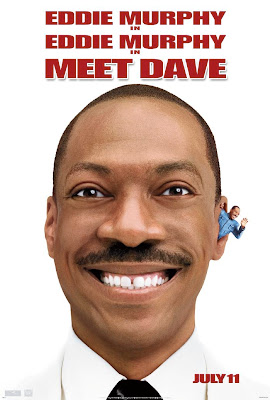 Meet Dave: Eddie Murphy’s highest grossing film for 2008
Meet Dave: Eddie Murphy’s highest grossing film for 2008
Gross: $11,644,832
Cast: co-starring Elizabeth Banks, anonymous supporting cast, including Gabrielle Union, Scott Caan, Ed Helms, Kevin Hart, and Mike O’Malley
Analysis: Has Eddie Murphy ever been in a movie that isn’t an Eddie Murphy movie? Again: movie poster. (Bonus points for anyone who can find me a film poster that features a female lead like this. Hint: one of the films on this big ass list does it.)
Verdict: Eddie Murphy movie, supported by Banks and less well-known actors.
********************************************************************
 Knowing: Nicolas Cage’s highest grossing film for 2008
Knowing: Nicolas Cage’s highest grossing film for 2008
Gross: $79,911,877
Cast: anonymous supporting cast, including Chandler Canterbury, Rose Byrne, Lara Robinson, D.G. Maloney, and Nadia Townsend
Analysis: I think the phrase “anonymous supporting cast” is enough of an analysis.
Verdict: Nicolas Cage movie, supported by an anonymous male/female cast.
********************************************************************
(Tom Hanks: did not star in any films for 2008)
Analysis: I’m pretty sure Tom Hanks makes money just by existing.
********************************************************************
 Tropic Thunder: Tom Cruise’s highest grossing film for 2008
Tropic Thunder: Tom Cruise’s highest grossing film for 2008
Gross: $110,416,702
Cast: cameo/supporting role by Cruise, well-known ensemble cast, including Robert Downey Jr., Jack Black, and Ben Stiller
Analysis: No one really knew Tom Cruise was in this, and many people didn’t recognize him even as they watched. I kind of love that. Were there any women in this movie?
Verdict: I’ll give it to any one of the other prominent male cast members who isn’t Tom Cruise.
********************************************************************
 Horton Hears a Who!: Jim Carrey’s highest grossing film of 2008
Horton Hears a Who!: Jim Carrey’s highest grossing film of 2008
Gross: $154,388,002
Cast: well-known ensemble/supporting cast, including Steve Carell, Carol Burnett, Will Arnett, Seth Rogen, Isla Fisher, Jonah Hill, and Amy Poehler
Analysis: They promoted this as a Jim Carrey/Steve Carell comedy, but Jim Carrey is Jim Carrey and Steve Carell made Evan Almighty. It’s a kids film, though, so maybe none of that matters.
Verdict: My 4-year-old niece doesn’t give a shit, so neither do I, supported by a prominent male/female cast.
********************************************************************
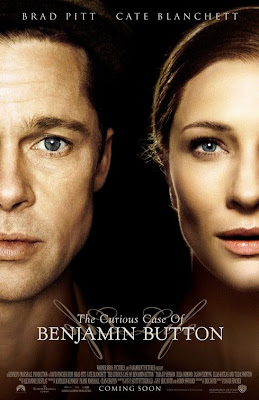 The Curious Case of Benjamin Button: Brad Pitt’s highest grossing film for 2008
The Curious Case of Benjamin Button: Brad Pitt’s highest grossing film for 2008
Gross: $127,490,802
Cast: co-starring Cate Blanchett as love interest, reasonably well-known supporting cast, including Julia Ormond and Taraji P. Henson
Analysis: Cate Blanchett’s performance in this captured me much more than Brad Pitt’s performance, but I guess the Academy feels like they’ve already given her enough Oscars. Ultimately, the stand-outs were the women: Blanchett and Henson. But Brad Pitt has a bunch of kids with Angelina Jolie and he even dressed up in some kind of old man disguise for this film, so I really don’t know what to do here. I’m taking a cue from the movie poster.
Verdict: Pitt/Blanchett movie, supported mainly by a female cast of mommies and love interests.
********************************************************************
(Johnny Depp: did not star in any films for 2008)
Analysis: Remember when Johnny Depp wore that cut-off-at-the-waist football jersey in Nightmare on Elm Street?
********************************************************************
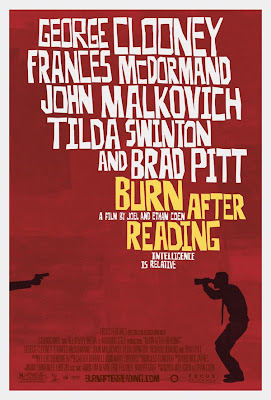 Burn After Reading: George Clooney’s highest grossing film for 2008
Burn After Reading: George Clooney’s highest grossing film for 2008
Gross: $60,338,891
Cast: well-known ensemble cast, including Frances McDormand, Brad Pitt, Richard Jenkins, Tilda Swinton, and John Malkovich
Analysis: I just watched this five days ago and was totally surprised by the focus on McDormand and Swinton. All these people have either been nominated for Oscars or won Oscars, and it’s definitely an ensemble-driven film. So, sorry Clooney, this doesn’t exclusively go to you.
Verdict: Everyone, equal weight given to a prominent male/female cast.
********************************************************************
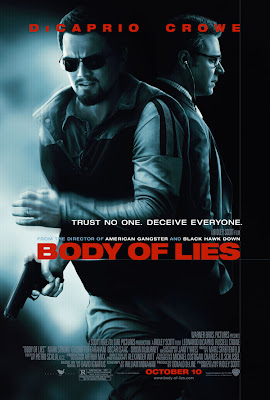 Body of Lies: Russell Crowe’s highest grossing film for 2008
Body of Lies: Russell Crowe’s highest grossing film for 2008
Gross: $39,380,442
Cast: co-starring Leonardo DiCaprio, anonymous supporting cast, including Mark Strong, Golshifteh Farahani, and Ali Suliman
Analysis: I actually couldn’t remember what the hell this movie was, so I looked it up and even then I still didn’t remember it ever existing. But apparently it made money. So who do I give it to, Crowe or DiCaprio? The suspense!
Verdict: Who cares—didn’t this go straight to DVD? (Men supporting men.)
********************************************************************
 Iron Man: Robert Downey Jr.’s highest grossing film for 2008
Iron Man: Robert Downey Jr.’s highest grossing film for 2008
Gross: $318,298,180
Cast: co-starring Gwyneth Paltrow as love interest, well-known supporting cast, including Terrence Howard, Jeff Bridges, Paul Bettany, and Jon Favreau
Analysis: Oscar-winner Gwyneth Paltrow! Oh wait, that doesn’t mean anything? Just check out our review of this movie here.
Verdict: Robert Downey Jr., supported by Paltrow and a prominent male cast.
********************************************************************
(Denzel Washington: did not star in any films for 2008)
Analysis: I love you, Denzel.
********************************************************************
 Four Christmases: Vince Vaughn’s highest grossing film for 2008
Four Christmases: Vince Vaughn’s highest grossing film for 2008
Gross: $120,136,047
Cast: co-starring Reese Witherspoon as love interest, well-known supporting cast, including Robert Duvall, Sissy Spacek, Jon Voight, and Jon Favreau
Analysis: See above. Even though Vaughn could be a good actor if he wanted to, it doesn’t really matter in the simplistic world of rom-com.
Verdict: Witherspoon/Vaughn movie, supported by men and Spacek.
********************************************************************
So, did I learn anything from this exercise? What the hell was I trying to do again? Oh yeah, depress the shit out of myself, and this:
… discover if a trend exists where male leads star in their “own movies” whereas female leads tend to blend in with the rest of their cast (which often includes major male actors) …
Well, the male leads who star as the “main attraction,” surrounded by a mostly anonymous supporting cast include George Clooney in Leatherheads (this one’s tricky since Zellweger and Krasinski co-star and probably don’t count as “anonymous” ha, but whatever), Adam Sandler in Bedtime Stories, Nicolas Cage in Knowing, and Eddie Murphy in Meet Dave.
One could argue that films like Iron Man and Indiana Jones and Hancock and The Other Boleyn Girl—films that relegate prominent lead actresses to the status of sidekick and/or love interest (and for that matter, go on ahead and add The Curious Case of Benjamin Button to that list)—while the men go off and save the world and/or run the world and/or do shit in the world, and shit, might as well fall into the male-lead-as-main-attraction category.
I think maybe I just convinced myself that they do. Fuck.
Okay, so, the female leads who manage to star as the “main attraction,” surrounded by a mostly anonymous supporting cast include, um … Kate Winslet in The Reader?! That’s it? I guess Ralph Fiennes isn’t even anonymous, but neither are Zellweger and Krasinski, and I gave Clooney Leatherheads! Take that, film industry!
I’m depressed.
It appears, from this list at least, that female leads either co-star with a male lead in romantic comedies, or star in films that include a prominent supporting cast, (Mamma Mia!, Sex and the City). Clearly, we could use more Tomb Raiders and Changelings (go Angelina!) and whatever other movies our actresses have starred in as the “main attraction” who’s surrounded by a mostly anonymous supporting cast.
Can we make a list, please? Because I’m pretty sure I was wrong when I suggested that the audience might only be viewing female leads as helpers, partners, and assistants; the film industry actually fucking treats them that way.
********************************************************************
Bonus Movie Poster
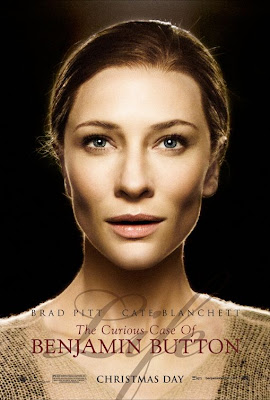
 Within the past few years especially, independent films have developed a certain easily identifiable “indie charm,” and 500 Days of Summer most definitely fulfills the criteria. These films used to be termed “independent” due to budget constraints, but just like the big studio films, indie movies have essentially become marketable, targeting a very specific audience to the point that indie elements have basically become indie clichés:
Within the past few years especially, independent films have developed a certain easily identifiable “indie charm,” and 500 Days of Summer most definitely fulfills the criteria. These films used to be termed “independent” due to budget constraints, but just like the big studio films, indie movies have essentially become marketable, targeting a very specific audience to the point that indie elements have basically become indie clichés:
 medy that changed-up the genre by turning the leading man into a mushy, self-loathing disaster who attempts to accept the reality of unrequited love, I hated how much the film still turned the female lead into a sidekick. In traditional romantic comedies, problematic as they are, the films at the very least focus on the couple, and you get to know the characters individually (The Break-Up, Eternal Sunshine, etc) by watching their interactions and conflicts as a couple.
medy that changed-up the genre by turning the leading man into a mushy, self-loathing disaster who attempts to accept the reality of unrequited love, I hated how much the film still turned the female lead into a sidekick. In traditional romantic comedies, problematic as they are, the films at the very least focus on the couple, and you get to know the characters individually (The Break-Up, Eternal Sunshine, etc) by watching their interactions and conflicts as a couple.
 defending himself a little too; after all, the initial punch happens after the other man says to Summer, “I can’t believe this guy is your boyfriend.” Harsh. But I would’ve loved the scene even more if it hadn’t been undercut by Summer showing up at Tom’s apartment later, soaking wet from the rain, to apologize for getting angry with him.
defending himself a little too; after all, the initial punch happens after the other man says to Summer, “I can’t believe this guy is your boyfriend.” Harsh. But I would’ve loved the scene even more if it hadn’t been undercut by Summer showing up at Tom’s apartment later, soaking wet from the rain, to apologize for getting angry with him.
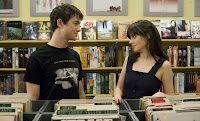 I found it appropriately cute and indie-funny. And he goes on a blind date once, where he spends the entire time complaining to his date about Summer. (To the film’s credit, the woman he’s on the date with defends the shit out of Summer, rather than veering off into traditional rom-com female competitive-jealous territory.) Other than those few women though, it’s all about Tom.
I found it appropriately cute and indie-funny. And he goes on a blind date once, where he spends the entire time complaining to his date about Summer. (To the film’s credit, the woman he’s on the date with defends the shit out of Summer, rather than veering off into traditional rom-com female competitive-jealous territory.) Other than those few women though, it’s all about Tom.
 ologetic. For her to never come across as potentially manipulative or dishonest, because she isn’t either of those things. And for the writers and/or director to have taken as much care in creating a 3-dimensional female lead as they did in creating a fully fleshed-out male lead who picks himself up, dusts himself off, and goes out and accomplishes shit.
ologetic. For her to never come across as potentially manipulative or dishonest, because she isn’t either of those things. And for the writers and/or director to have taken as much care in creating a 3-dimensional female lead as they did in creating a fully fleshed-out male lead who picks himself up, dusts himself off, and goes out and accomplishes shit.
 end of the day, despite its shortcomings, I couldn’t help but really like this “story about love.” It felt authentic, at least in its illustration of relationship conflicts, from the initial courtship phase to the inevitable dissolution. Deschanel maintains her complete adorability and Gordon-Levitt, well, we love him! Their on-screen chemistry, intermingled with all kinds of mopiness and feel-goodness and splashes of The Smiths and Regina Spektor … look, who cares about my criticisms? You should probably just go see this.
end of the day, despite its shortcomings, I couldn’t help but really like this “story about love.” It felt authentic, at least in its illustration of relationship conflicts, from the initial courtship phase to the inevitable dissolution. Deschanel maintains her complete adorability and Gordon-Levitt, well, we love him! Their on-screen chemistry, intermingled with all kinds of mopiness and feel-goodness and splashes of The Smiths and Regina Spektor … look, who cares about my criticisms? You should probably just go see this.
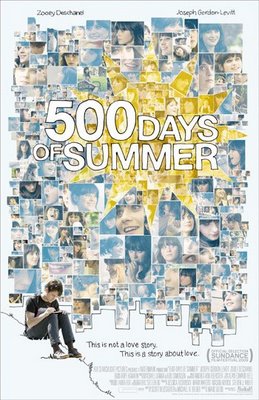
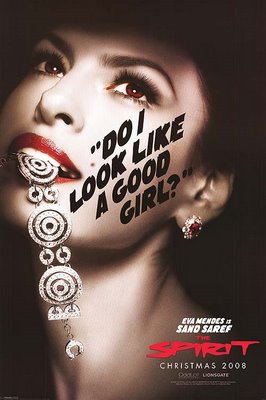


































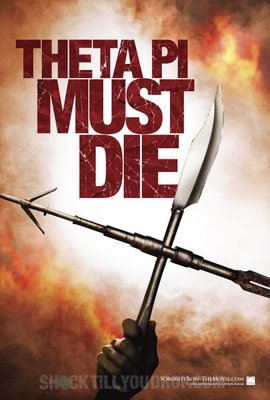



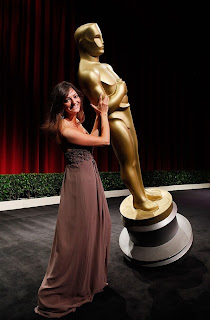
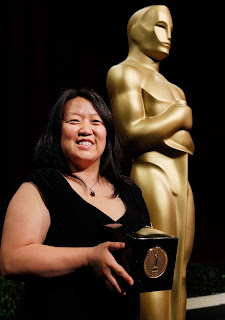

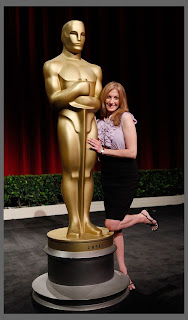
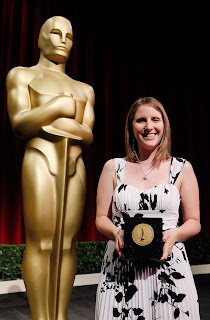

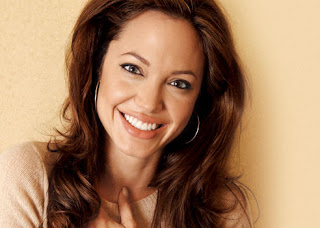

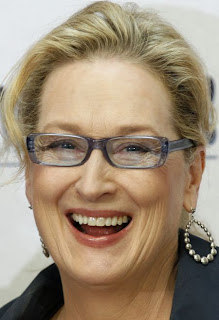
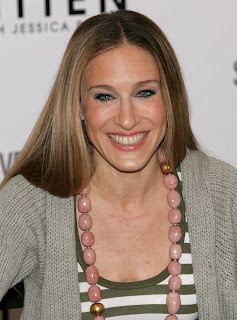

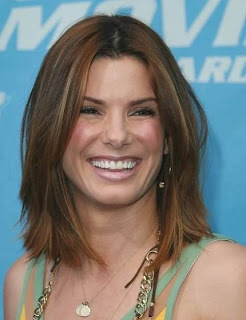

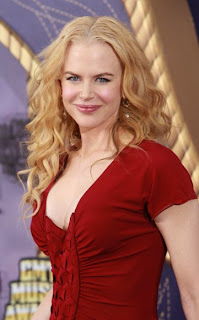


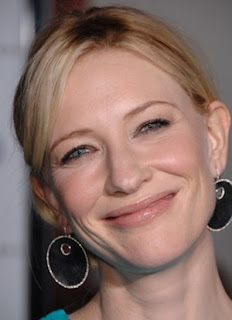
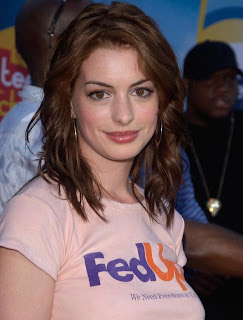



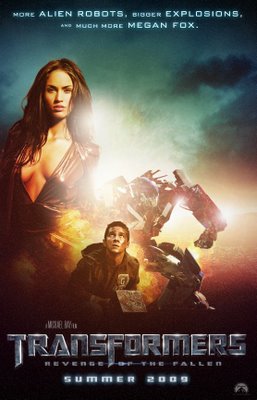
 Despite its abysmal reviews,
Despite its abysmal reviews, 